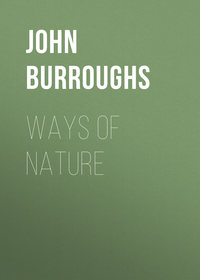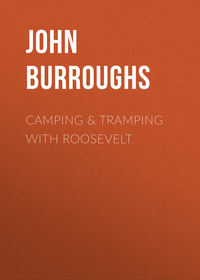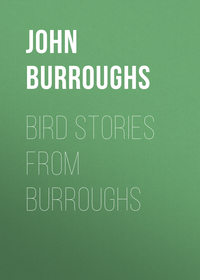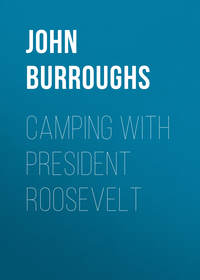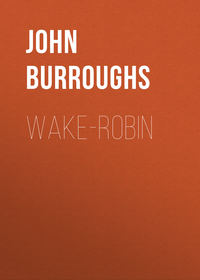 полная версия
полная версияWhitman: A Study
The trouble with most of us is that we found our taste for poetry upon particular authors, instead of upon literature as a whole, or, better yet, upon life and reality. Hence we form standards instead of principles. Standards are limited, rigid, uncompromising, while principles are flexible, expansive, creative. If we are wedded to the Miltonic standard of poetry, the classic standards, we shall have great difficulties with Whitman; but if we have founded our taste upon natural principles – if we have learned to approach literature through reality, instead of reality through literature – we shall not be the victims of any one style or model; we shall be made free of all. The real test of art, of any art, as Burke long ago said, and as quoted by Mr. Howells in his trenchant little volume called "Criticism and Fiction," is to be sought outside of art, namely, in nature. "I can judge but poorly of anything while I measure it by no other standard than itself. The true standard of the arts is in every man's power; and an easy observation of the most common, sometimes of the meanest, things in nature will give the truest lights." It is thought that the preëminence of the Greek standards is settled when we say they are natural. Yes, but Nature is not Greek. She is Asiatic, German, English, as well.
VIn poetry, in art, a man must sustain a certain vital relation to his work, and that work must sustain a certain vital relation to the laws of mind and of life. That is all, and that leaves the doors very wide. We are not to ask, Is it like this or like that? but, Is it vital, is it real, is it a consistent, well-organized whole?
The poet must always interpret himself and nature after his own fashion. Is his fashion adequate? Is the interpretation vivid and real? Do his lines cut to the quick, and beget heat and joy in the soul? If we cannot make the poet's ideal our own by sharing his enthusiasm for it, the trouble is as likely to be in ourselves as in him. In any case he must be a law unto himself.
The creative artist differs from the mere writer or thinker in this: he sustains a direct personal relation to his subject through emotion, intuition, will. The indirect, impersonal relation which works by reflection, comparison, and analysis is that of the critic and philosopher. The man is an artist when he gives us a concrete and immediate impression of reality: from his hands we get the thing itself; from the critic and thinker we get ideas about the thing. The poet does not merely say the world is beautiful; he shows it as beautiful: he does not describe the flower; he places it before us. What are the enemies of art? Reflection, didacticism, description, the turgid, the obscure. A poet with a thesis to sustain is more or less barred from the freedom of pure art. It is by direct and unconsidered expression, says Scherer, that art communicates with reality. The things that make for art, then, are feeling, intuition, sentiment, soul, a fresh and vigorous sense of real things, – in fact, all that makes for life, health, and wholeness. Goethe is more truly an artist in the first part of Faust than in the second; Arnold has a more truly artistic mind than Lowell.
The principles of art are always the same in the respect I have indicated, just as the principles of life are always the same, or of health and longevity are always the same. No writer is an artist who is related to his subject simply by mental or logical grip alone: he must have a certain emotional affiliation and identity with it; he does not so much convey to us ideas and principles as pictures, parables, impressions, – a lively sense of real things. When we put Whitman outside the pale of art, we must show his shortcomings here; we must show that he is not fluid and generative, – that he paints instead of interprets, that he gives us reasons instead of impulses, a stone when we ask for bread. "I do not give a little charity," he says; "when I give, I give myself." This the artist always does, not his mind merely, but his soul, his personality. "Leaves of Grass" is as direct an emanation from a central personal force as any book in literature, and always carries its own test and its own proof. It never hardens into a system, it never ceases to be penetrated with will and emotion, it never declines from the order of deeds to the order of mere thoughts. All is movement, progress, evolution, picture, parable, impulse.
It is on these grounds that Whitman, first of all, is an artist. He has the artist temperament. His whole life was that of a man who lives to ideal ends, – who lived to bestow himself upon others, to extract from life its meaning and its joy.
VIWhitman has let himself go, and trusted himself to the informal and spontaneous, to a degree unprecedented. His course required a self-reliance of the highest order; it required an innate cohesion and homogeneity, a firmness and consistency of individual outline, that few men have. It would seem to be much easier to face the poet's problem in the old, well-worn forms – forms that are so winsome and authoritative in themselves – than, to stand upon a basis so individual and intrinsic as Whitman chose to stand upon. His course goes to the quick at once. How much of a man are you? How vital and fundamental is your poetic gift? Can it go alone? Can it face us in undress?
Never did the artist more cunningly conceal himself; never did he so completely lose himself in the man, identifying himself with the natural and spontaneous; never emerging and challenging attention on his own account, denying us when we too literally seek him, mocking us when we demand his credentials, and revealing himself only when we have come to him upon his own terms.
The form the poet chose favored this self-revelation; there is nothing, no outside conscious art, to stand between himself and his reader. "This is no book," he says: "who touches this touches a man." In one sense Whitman is without art, – the impression which he always seeks to make is that of reality itself. He aims to give us reality without the usual literary veils and illusions, – the least possible amount of the artificial, the extrinsic, the put-on, between himself and his reader. He banishes from his work, as far as possible, what others are so intent upon, – all atmosphere of books and culture, all air of literary intention and decoration, – and puts his spirit frankly and immediately to his readers. The verse does not seem to have been shaped; it might have grown: it takes no apparent heed of externals, but flows on like a brook, irregular, rhythmical, and always fluid and real. A cry will always be raised against the producer in any field who discards the authority of the models and falls back upon simple Nature, or upon himself, as Millet did in painting, and Wagner in music, and Whitman in poetry.
Whitman's working ideas, the principles that inspired him, are all directly related to life and the problems of life; they are democracy, nature, freedom, love, personality, religion: while the ideas from which our poets in the main draw their inspiration are related to art, – they are literary ideas, such as lucidity, form, beauty.
VIIMuch light is thrown upon Whitman's literary methods and aims by a remark which he once made in conversation with Dr. Bucke: —
"I have aimed to make the book simple, – tasteless, or with little taste, – with very little or no perfume. The usual way is for the poet or writer to put in as much taste, perfume, piquancy, as he can; but this is not the way of nature, which I take for model. Nature presents us her productions – her air, earth, waters, even her flowers, grains, meats – with faint and delicate flavor and fragrance, but these in the long run make the deepest impression. Man, dealing with natural things, constantly aims to increase their piquancy. By crossing and selection he deepens and intensifies the scents and hues of flowers, the tastes of fruits, and so on. He pursues the same method in poetry, – that is, strives for strong light or shade, for high color, perfume, pungency, in all ways for the greatest immediate effect. In so doing he leaves the true way, the way of Nature, and, in the long run, comes far short of producing her effects."
More light of the same kind is thrown upon his methods by the following passage from the preface to the first edition of his poems in 1855.
"To speak in literature," he says, "with the perfect rectitude and insouciance of the movements of animals, and the unimpeachableness of the sentiment of trees in the woods and grass by the roadside, is the flawless triumph of art." And again: "The great poet has less a marked style, and is more the channel of thoughts and things without increase or diminution, and is the free channel of himself. He swears to his art, I will not be meddlesome; I will not have in my writing any elegance, or effect, or originality, to hang in the way between me and the rest like curtains. I will have nothing hang in the way, not the richest curtains. What I tell, I tell for precisely what it is. Let who may exalt or startle or fascinate or soothe, I will have purpose, as health or heat or snow has, and be as regardless of observation. What I experience or portray shall go from my composition without a shred of my composition. You shall stand by my side and look in the mirror with me."
VIIIBut in view of the profound impression Whitman's work has made upon widely different types of mind on both sides of the Atlantic, and in view of the persistent vitality of his fame, the question whether he is inside or outside the pale of art amounts to very little. I quite agree with the late Mrs. Gilchrist, that, when "great meanings and great emotions are expressed with corresponding power, literature has done its best, call it what you please."
That Whitman has expressed great meanings and great emotions with adequate power, even his unfriendly critics admit. Thus Professor Wendell, in an admirable essay on American literature, says that "though Whitman is uncouth, inarticulate, and lacking in a grotesque degree artistic form, yet for all that he can make you feel for the moment how even the ferry-boats plying from New York to Brooklyn are fragments of God's eternities." In the same way Mr. William Clark, his British critic and expounder, says that he is wanting in discrimination and art, "flings his ideas at us in a heap," etc., and yet that the effect of his work is "to stir our emotions, widen our interests, and rally the forces of our moral nature."
It seems to me that a man who, through the printed page, can do these things, must have some kind of art worth considering. If, through his impassioned treatment of a prosy, commonplace object like a ferry-boat, he can so dignify and exalt it, and so fill it with the meanings of the spirit, that it seems like a part of God's eternities, his methods are at least worth inquiring into.
The truth is, Whitman's art, in its lack of extrinsic form and finish, is Oriental rather than Occidental, and is an offense to a taste founded upon the precision and finish of a mechanical age. His verse is like the irregular, slightly rude coin of the Greeks compared with the exact, machine-cut dies of our own day, or like the unfinished look of Japanese pottery beside the less beautiful but more perfect specimens of modern ceramic art.
For present purposes, we may say there are two phases of art, – formal art and creative art. By formal art I mean that which makes a direct appeal to our sense of form, – our sense of the finely carved, the highly wrought, the deftly planned; and by creative art I mean that quickening, fructifying power of the masters, that heat and passion that make the world plastic and submissive to their hands, teeming with new meanings and thrilling with new life.
Formal art is always in the ascendant. Formal anything – formal dress, formal manners, formal religion, formal this and that – always counts for more than the informal, the spontaneous, the original. It is easier, it can be put off and on.
Formal art is nearly always the gift of the minor poet, and often of the major poet also. In such a poet as Swinburne, formal art leads by a great way. The content of his verse, – what is it? In Tennyson as well I should say formal art is in the ascendant. Creative art is his also; Tennyson reaches and moves the spirit, yet his skill is more noteworthy than his power. In Wordsworth, on the other hand, I should say creative art led: the content of his verse is more than its form; his spiritual and religious values are greater than his literary and artistic. The same is true of our own Emerson. Poe, again, is much more as an artist than as a man or a personality.
I hardly need say that in Whitman formal art, the ostensibly artistic, counts for but very little. The intentional artist, the professional poet, is kept entirely in abeyance, or is completely merged and hidden in the man, more so undoubtedly than in any poet this side the old Oriental bards. We call him formless, chaotic, amorphous, etc., because he makes no appeal to our modern highly stimulated sense of art or artificial form. We must discriminate this from our sense of power, our sense of life, our sense of beauty, of the sublime, of the all, which clearly Whitman would reach and move. Whitman certainly has a form of his own: what would a poet, or any writer or worker in the ideal, do without some kind of form? some consistent and adequate vehicle of expression? But Whitman's form is not what is called artistic, because it is not brought within the rules of the prosodical system, and does not appeal to our sense of the consciously shaped and cultivated. It is essentially the prose form heightened and intensified by a deep, strong, lyric and prophetic note.
The bonds and shackles of regular verse-form Whitman threw off. This course seemed to be demanded by the spirit to which he had dedicated himself, – the spirit of absolute unconstraint. The restrictions and hamperings of the scholastic forms did not seem to be consistent with this spirit, which he identified with democracy and the New World. A poet who sets out to let down the bars everywhere, to remove veils and obstructions, to emulate the freedom of the elemental forces, to effuse always the atmosphere of open-air growths and objects, to be as "regardless of observation" as the processes of nature, etc., will not be apt to take kindly to any arbitrary and artificial form of expression. The essentially prose form which Whitman chose is far more in keeping with the spirit and aim of his work than any conventional metrical system could have been. Had he wrought solely as a conscious artist, aiming at the effect of finely chiseled forms, he would doubtless have chosen a different medium.
IXWhitman threw himself with love and enthusiasm upon this great, crude, seething, materialistic American world. The question is, Did he master it? Is he adequate to absorb and digest it? Does he make man-stuff of it? Is it plastic in his hands? Does he stamp it with his own image? I do not ask, Does he work it up into what are called artistic forms? Does he make it the quarry from which he carves statues or builds temples? because evidently he does not do this, or assume to do it. He is content if he present America and the modern to us as they are inwrought into his own personality, bone of his bone and flesh of his flesh, or as character, passion, will, motive, conviction. He would show them subjectively and as living impulses in himself. Of course a great constructive, dramatic poet like Shakespeare would have solved his problem in a different manner, or through the objective, artistic portrayal of types and characters. But the poet and prophet of democracy and of egotism shows us all things in and through himself.
His egotism, or egocentric method, is the fundamental fact about his work. It colors all and determines all. The poems are the direct outgrowth of the personality of the poet; they are born directly upon the ego, as it were, like the fruit of that tropical tree which grows immediately upon the trunk. His work is nearer his radical, primary self than that of most poets. He never leads us away from himself into pleasant paths with enticing flowers of fancy or forms of art. He carves or shapes nothing for its own sake; there is little in the work that can stand on independent grounds as pure art. His work is not material made precious by elaboration and finish, but by its relation to himself and to the sources of life.
XWhitman was compelled to this negation of extrinsic art by the problem he had set before himself, – first, to arouse, to suggest, rather than to finish or elaborate, less to display any theme or thought than "to bring the reader into the atmosphere of the theme or thought;" secondly, to make his own personality the chief factor in the volume, or present it so that the dominant impression should always be that of the living, breathing man as we meet him and see him and feel him in life, and never as we see him and feel him in books or art, – the man in the form and garb of actual, concrete life, not as poet or artist, but simply as man. This is doubtless the meaning of the vestless and coatless portrait of himself prefixed to the first issue of the "Leaves," to which I have referred. This portrait is symbolical of the whole attitude of the poet toward his task. It was a hint that we must take this poet with very little literary tailoring; it was a hint that he belonged to the open air, and came of the people and spoke in their spirit.
It is never the theme treated, but always the character exploited; never the structure finished, but always the plan suggested; never the work accomplished, but always the impulse imparted, – freedom, power, growth.
"Allons! we must not stop here.However sweet these laid-up stores, however convenient this dwelling, we cannot remain here,However sheltered this port, or however calm these waters, we must not anchor here,However welcome the hospitality that surrounds us we are permitted to receive it but a little while."Allons! With power, liberty, the earth, the elements!Health, defiance, gayety, self-esteem, curiosity;Allons! from all formulas!From your formulas, O bat-eyed and materialistic priests!"This magnificent poem, "The Song of the Open Road," is one of the most significant in Whitman's work. He takes the open road as his type, – not an end in itself, not a fulfillment, but a start, a journey, a progression. It teaches him the profound lesson of reception, "no preference nor denial," and the profounder lesson of liberty and truth: —
"From this hour, freedom!From this hour I ordain myself loosed of limits and imaginary lines,Going where I list – my own master, total and absolute,Listening to others, and considering well what they say,Pausing, searching, receiving, contemplating,Gently, but with undeniable will, divesting myself of the holds that would hold me."I inhale great draughts of air,The east and the west are mine, and the north and the south are mine."He will not rest with art, he will not rest with books, he will press his way steadily toward the largest freedom.
"Only the kernel of every object nourishes.Where is he who tears off the husks for you and me?Where is he who undoes stratagems and envelopes for you and me?"Whitman was not a builder. If he had the architectural power which the great poets have shown, he gave little proof of it. It was not required by the task he set before himself. His book is not a temple: it is a wood, a field, a highway; vista, vista, everywhere, – vanishing lights and shades, truths half disclosed, successions of objects, hints, suggestions, brief pictures, groups, voices, contrasts, blendings, and, above all, the tonic quality of the open air. The shorter poems are like bunches of herbs or leaves, or a handful of sprays gathered in a walk; never a thought carefully carved, and appealing to our sense of artistic form.
The main poem of the book, "The Song of Myself," is a series of utterances, ejaculations, apostrophes, enumerations, associations, pictures, parables, incidents, suggestions, with little or no structural or logical connection, but all emanating from a personality whose presence dominates the page, and whose eye is ever upon us. Without this vivid and intimate sense of the man back of all, of a sane and powerful spirit sustaining ours, the piece would be wild and inchoate.
XIThe reader will be sure to demand of Whitman ample compensation for the absence from his work of those things which current poets give us in such full measure. Whether or not the compensation is ample, whether the music of his verse as of winds and waves, the long, irregular, dithyrambic movement, its fluid and tonic character, the vastness of conception, the large, biblical speech, the surging cosmic emotion, the vivid personal presence as of the living man looking into your eye or walking by your side, – whether all these things, the refreshing quality as of "harsh salt spray" which the poet Lanier found in the "Leaves," the electric currents which Mrs. Gilchrist found there, the "unexcelled imaginative justice of language" which Mr. Stevenson at times found, the religious liberation and faith which Mr. Symonds found, the "incomparable things incomparably well said" of Emerson, the rifle-bullets of Ruskin, the "supreme words" of Colonel Ingersoll, etc., – whether qualities and effects like these, I say, make up to us for the absence of the traditional poetic graces and adornments, is a question which will undoubtedly long divide the reading world.
In the works upon which our poetic taste is founded, artistic form is paramount; we have never been led to apply to such works open-air standards, – clouds, trees, rivers, spaces, – but the precision and definiteness of the cultured and the artificial. If Whitman had aimed at pure art and had failed, his work would be intolerable. As his French critic, Gabriel Sarrazin, has well said: "In the large work which Whitman attempted, there come no rules save those of nobility and strength of spirit; and these suffice amply to create a most unlooked-for and grandiose aspect of beauty." "Overcrowded and disorderly" as it may seem, "if heroic emotion and thought and enthusiasm vitalize it," the poet has reached his goal.
XIISometimes I define Whitman to myself as the poet of the open air, – not because he sings the praises of these things after the manner of the so-called nature-poets, but because he has the quality of things in the open air, the quality of the unhoused, the untamed, the elemental and aboriginal. He pleases and he offends, the same way things at large do. He has the brawn, the indifference, the rudeness, the virility, the coarseness, – something gray, unpronounced, elemental, about him, the effect of mass, size, distance, flowing, vanishing lines, neutral spaces, – something informal, multitudinous, and processional, – something regardless of criticism, that makes no bid for our applause, not calculated instantly to please, unmindful of details, prosaic if we make it so, common, near at hand, and yet that provokes thought and stirs our emotions in an unusual degree. The long lists and catalogues of objects and scenes in Whitman, that have so excited the mirth of the critics, are one phase of his out-of-doors character, – a multitude of concrete objects, a grove, a thicket, a field, a stretch of beach, – every object sharply defined, but no attempt at logical or artistic sequence, the effect of the whole informal, multitudinous. It may be objected to these pages that they consist of a mass of details that do not make a picture. But every line is a picture of a scene or an object. Whitman always keeps up the movement, he never pauses to describe; it is all action.
Passing from such a poet as Tennyson to Whitman is like going from a warm, perfumed interior, with rich hangings, pictures, books, statuary, fine men and women, out into the street, or upon the beach, or upon the hill, or under the midnight stars. We lose something certainly, but do we not gain something also? Do we not gain just what Whitman had in view, namely, direct contact with the elements in which are the sources of our life and health? Do we not gain in scope and power what we lose in art and refinement?
The title, "Leaves of Grass," is full of meaning. What self-knowledge and self-scrutiny it implies! The grass, perennial sprouting, universal, formless, common, the always spread feast of the herds, dotted with flowers, the herbage of the earth, so suggestive of the multitudinous, loosely aggregated, unelaborated character of the book; the lines springing directly out of the personality of the poet, the soil of his life.


